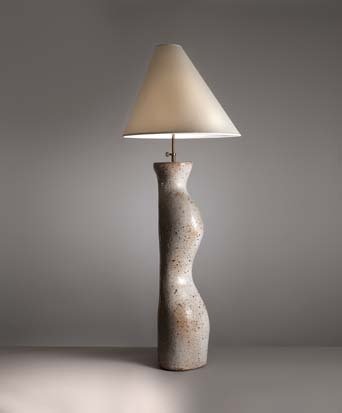Elisabeth Joulia
Born on July 30, 1925, in Riom, Élisabeth Joulia was a visionary ceramist who, from the 1950s onwards, freed ceramics from tradition to explore organic forms imbued with rare sensuality and poetry. Trained at the Beaux-Arts schools of Clermont-Ferrand, Paris (fresco), and Bourges (ceramics with Jean Lerat), she settled in 1949 in the pottery village of La Borne, where she would live and create until her passing in August 2003. Working with living clay—built by coil, enhanced with natural engobes and ash glazes—she gave birth to nature-inspired works: “Chestnuts,” “Almonds,” mushrooms, corollas, and goddesses—all essential yet intuitive forms. From the 1970s, her oeuvre took on new dimensions—feminine, symbolic, monumental—drawing on ancient marks and her travels in Egypt and Sudan, where she sought primal creative energies. Straddling the boundary between utility and metaphor, Élisabeth Joulia crafted ceramics as a cryptic, living language—quiet yet resonant poetry of material that continues to speak through museums and hearts.




